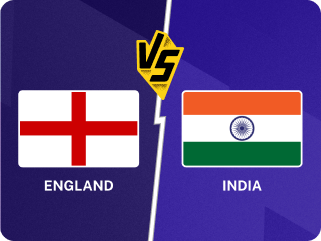
After resting him for the T20Is in New Zealand, Pakistan have left Mohammad Haris out of the home series against the same side, and it is not very clear why.
Subscribe to the Wisden Cricket YouTube channel for post-match analysis, player interviews, and much more.
Let us delve into our memories. After being PakBeaned by Zimbabwe, Pakistan needed to beat both South Africa and Bangladesh and expect several combinations to work in their favour to make it to the 2022 T20 World Cup World semi-final.
South Africa boasted of some big hitters, but before they came into the game, there was the little matter of taking on their fast bowlers – Kagiso Rabada, Anrich Nortje, Wayne Parnell, Lungi Ngidi – fresh from an excellent outing against India.
Mohammad Rizwan fell in the fourth ball of the first over. Shan Masood, with 52 not out against India and 44 against Zimbabwe under his belt, was the next man in. But Pakistan promoted Mohammad Haris, a man with one game and seven runs under his belt in the format.
Haris fell exactly four overs later, but not before bringing fans to their feet. There were two balls left in the over, and Parnell hit him on the helmet with the second of these. The next ball Haris faced was from an overpitched ball from Rabada: it sailed for six. Rabada hit back with a bouncer: Haris hooked it for six. When Rabada bounced again, Haris hooked him for four. He then cut Parnell for four and scooped Nortje for six. The second-wicket stand had added 34 in 24 balls; of these, Haris had smashed 28 in 11, reducing Babar Azam to a spectator.
Pakistan’s journey to the final would not have been possible without Haris’ cameo, but it did not end there. There was an 18-ball 31 against Bangladesh. With a low target to chase in the semi-final, his 30 was important after fifties from Babar and Rizwan.
Haris finished the World Cup with 97 runs at a strike rate of 145. He was part of the second-string squad for the three-match T20I series against Afghanistan, played immediately after the 2023 PSL. Against New Zealand at home, he played in one out of five matches. Pakistan sent another second-string side to the Asian Games in Hangzhou, but there was no Haris.
The team underwent significant changes in the aftermath of an ordinary World Cup in India. Babar Azam stepped down as captain in all three formats. Mohammad Hafeez was appointed team director. The entire coaching staff was revamped.
Pakistan’s first T20Is under this new regime were in New Zealand, a five-match series. Haris was not part of the squad. “Haris is rested because there were some first-class performers and we saw Haris’ capability and since he’s part of our plans going forward, we want to use our pool of players,” explained chief selector Wahab Riaz.
What exactly these plans were remains unclear. Ahead of Pakistan’s home series against New Zealand, Pakistan sacked Hafeez, reappointed Babar as white-ball captain, appointed Azhar Mahmood as new interim head coach, and included Mohammad Amir and Imad Wasim, both of whom had recently reverted their retirement decisions, in the squad.
Yet, despite this wholesale change, there was one constant: Haris was not picked.
It is not as if Mohammad Haris has been playing ordinary cricket. In his last match, the PSL Eliminator 2, his 25-ball 40 provided Peshawar Zalmi much-needed impetus, a brisk cameo that ended an otherwise mediocre season.
However, across the last three editions of the PSL, Haris has amassed 658 runs at 171: no one – Pakistani or overseas – has scored as many runs at a rate this quick. Combine the PSL with the National T20 Cup, and Haris’ numbers read 1,135 runs at 156 – yet again, he is the fastest among those as prolific.
Whether Babar is set to return to the top or stay at one-drop is not yet clear, but there is little doubt that he and Rizwan will both bat inside the top three. Neither is a particularly rapid scorer. In T20Is, Babar scores 34 runs in 26 balls per innings and Rizwan 33 in 26 – numbers that do not change significantly across all T20s. In other words, between them, they use up 52 balls for 67 runs.
Whether that approach is relevant in 2024 can be debated. Let us, for now, agree that the stability they bring is necessary in a batting line-up as volatile, as prone to collapses as Pakistan’s. However, that makes quick scoring a matter of paramount importance for the batters. And in that one aspect, Haris is among the best in the nation – and he can also keep wicket.
One can only hope that he is still in Pakistan’s T20 World Cup 2024 plans.







